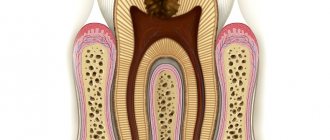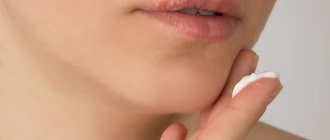It’s not for nothing that they say: “Aware is forearmed.” Often, most of us, having discovered the first malfunctions in the body’s functioning, panic and turn to medical encyclopedias, after which we begin to “suffer” from an unusually terrible, rare disease. But in reality everything turns out to be much simpler and more prosaic. Therefore, the best thing to do, when something bothers you, is to immediately visit a doctor, if possible maintaining the adequacy of actions before visiting a specialist.
So, let's take a look at the well-known symptom of eye discomfort. Let's figure out why they sting, sometimes to the point of watery eyes, what this is connected with and how to deal with it. So what to do if your eyes sting? Let's understand the reasons.
Burning eyes: causes, treatment
Often the cause of the burning sensation is quite easy to determine. For example, this sensation occurs when the mucous membrane comes into contact with various substances, cosmetics, and chemicals. Prolonged wearing of contact lenses, exposure to dust, dirt, pollen, exposure to too dry and hot air also provoke the appearance of pain and burning in the eyes, such an unpleasant symptom as burning in the eyes. Among other reasons:
- Blepharitis of demodectic etiology.
- Mechanical damage and injury. Even particles of sand that fall on the mucous membrane during a strong wind can cause burning, tingling and other unpleasant symptoms.
- Allergic conjunctivitis. Sometimes the eyes burn because a person experiences inflammation of the conjunctiva caused by a reaction to an allergen, such as animal dander or pollen.
- Incorrectly selected lenses. In this case, not only a burning sensation may occur, but also tension, irritation, and lacrimation.
- Dysfunction of the lacrimal glands. Due to a lack of natural hydration, burning eyes and dry eye syndrome (DES) occur.
- Eye strain. People who work a lot at the computer often experience itching and burning in the eyes, and watery eyes from overexertion.
- Ophthalmological and other diseases. A similar symptom can occur with conjunctivitis, cataracts, glaucoma, and also with diseases of the thyroid gland.
A burning sensation in the eye is often accompanied by other symptoms, including itching, discharge from the eyes and redness, pain, decreased visual acuity, and lacrimation. If these symptoms do not go away for more than two to three days, it is better to seek medical help. The specialist will conduct a diagnosis, determine the cause of the disorders and select treatment.
Eye diseases
This is the second, and in terms of frequency of cases, perhaps the first cause of redness, profuse lacrimation and cutting pain in the eyes. If you wake up in the morning and feel a tingling sensation in your eye, and in the mirror you see that it is seriously red and swollen, then it’s time to go to the ophthalmologist, because this may be one of the first signs of conjunctivitis - inflammation of the retina, which is caused by infection. True, there are a number of other diseases that manifest themselves with similar symptoms (tingling and redness of the eyes).
In the case of an infectious eye infection (for example, the eyelids sting due to blepharitis and barley, which are also infectious diseases), the necessary treatment is prescribed by a doctor. However, do not forget a few basic truths. For a viral infection, for example, herpes, influenza, it is necessary to take antiviral drugs. The most effective among them is interferon, which is produced in various pharmacological forms. In general, interferon is a substance produced by the human body, which is synthesized on the 7th day from the onset of the disease, precisely to repel various types of viruses by the immune system. However, for example, this same herpes is very latent to the interferon produced and is therefore dangerous. In other words, the body initially does not recognize herpes as a virus, which requires urgent production of interferon to combat. That is why you need to start treatment immediately.
In the case of a bacterial infection, which is most often caused by staphylococci and streptococci, it is worth acting comprehensively, including antibiotics in therapy. The human body is not capable of producing substances that can kill a particular infection completely, so the use of antibacterial agents is mandatory. But our body can keep invading infections under control for quite a long time due to its own immunity, for which it is necessary to strengthen the immune system. In this regard, vitamin C, retinol, and B vitamins are becoming universal remedies.
Can there be a sharp burning sensation in the eyes, profuse lacrimation when working at the computer?
Unpleasant sensations in the eyes often occur in people who are forced to work at a computer for a long time. This is to blame not only for the harmful radiation from the monitor, but also for the high load on the organ of vision, as well as a reduction in the frequency of blinking.
Normally, a person blinks from 10 to 20 or more times per minute. When working with digital information (at a computer, tablet, phone), the blinking frequency is reduced several times. Because of this, the precorneal film, which nourishes, moisturizes and protects the eyes from external influences, loses stability.
When the eyes no longer receive enough moisture, an unpleasant burning sensation in the eyes and watery eyes appears. Wearing contact optics can aggravate the situation. More tears are spent flowing around the contour and moistening the surface of the lens. If few of them are produced, a lot of unpleasant sensations appear. Increased tear production, which manifests itself as profuse lacrimation, does not help the situation.
If heating equipment or air conditioning is running in the room where a person is located, the burning sensation and dryness may also increase. Climate control dries the air, and dry air, in turn, promotes faster “weathering” of tears.
Detergents and cosmetics
These are probably the main and most common causes of pinching eyes. In other words, when using certain detergents or cosmetics, sometimes irritation of the mucous membranes occurs, which leads to such discomfort. This is a natural reaction of the body, which in any way wants to get rid of the irritant. In this case, it is enough to rinse your eyes well with plenty of warm running water and blot them with a clean napkin, and the unpleasant sensation will go away.
Sometimes when the eyes tingle, they may become red and remain for some time. In this case, you should use special eye drops that relieve irritation, which are a good idea to have in your first aid kit. They are instilled immediately after washing the eyes according to the instructions, which very quickly relieves the burning sensation and eliminates lacrimation. Usually one day is enough for the eyes to completely return to normal. But if the cause of eye irritation is an allergy, everything turns out to be somewhat more complicated. In the meantime, a few words about decorative cosmetics.
It is very important for every woman to have a beautiful appearance, because this is 99% of the success of any endeavor. Therefore, women will use it everywhere and always. However, the wrong selection of makeup products, especially those applied dangerously close to the eyes, can lead to severe irritation and allergic reactions.
As a result, the eyes sting, they become hyperemic and watery. At the same time, all the beautiful appearance goes down the drain. Therefore, it is very important to carefully select eye cosmetics and use a bio-series that includes natural ingredients, or special makeup options for sensitive skin. Eye mascara deserves special attention. It should be noted that most women in cosmetics stores like to use testers - trial samples of mascara. But this is a very high risk of tick infestation. Such an infection causes itching, burning and pain in the eyelash area. So, no one has canceled the hygiene rules yet.
Burning in the eye and lacrimation: what is it and how to treat it?
If your eyes are burning, you need to contact a specialist for help. After an external examination, he can conduct a biomicroscopy and determine how thick and hyperemic the edges of the eyelids are, tests for tear production and dysfunction of the meibomian glands in order to diagnose dry eye syndrome, and measure intraocular pressure. Based on the results obtained, a diagnosis is made, and in addition to dry eye syndrome, disorders can be caused by barley, conjunctivitis, allergies, and glaucoma.
As for treatment, it is selected individually and depends on the complexity of the problem and diagnosis. Non-drug treatment includes warm compresses and self-massage of the eyelids to cleanse the surface of the eyelids, to relieve the inflammatory process and toxic-allergic reaction.
The prescription of drug therapy by a specialist depends on the clinical manifestations and extent of the pathological process:
- eye drops for burning and lacrimation and various medications for oral administration (for allergies, dry eye syndrome, fatigue, infections);
- antimicrobials, antihistamines, non-steroidal anti-inflammatory drugs, antibiotics.
It is recommended to avoid contact with various substances on the mucous membrane, rubbing the face with dirty hands, stress, overwork, and violations of personal hygiene rules. In no case should you postpone visiting a specialist if a burning sensation in the eye is accompanied by other symptoms, namely increased sensitivity to light, discharge, decreased visual acuity, double vision, pain. Any abnormal manifestations that do not go away for several days indicate serious illness. And early diagnosis simplifies treatment.
Treatment
Conservative therapy
Treatment tactics are determined by the cause of itching in the eye area:
- Conjunctivitis.
Rinsing, instillation of medications, eye ointments, and subconjunctival injections are indicated. Depending on the etiology of the pathological process, antibacterial, antifungal or antimycotic topical drugs are used. - Blepharitis.
Eliminate factors that cause weakening of the body (carry out immunocorrection, sanitize chronic foci of infection). They carry out careful hygiene, use ointments with antibiotics, topical hormonal preparations, perform eyelid massage, ultraviolet irradiation, darsonvalization, electrophoresis, magnetic therapy, UHF. - Barley.
Before an abscess forms, the affected area is carefully treated with brilliant green, iodine or 70% ethyl alcohol. Antibiotics are instilled into the conjunctival cavity. At the maturation stage, dry heat, UHF, and quartz tube are prescribed. After spontaneous opening, topical antibacterial agents continue to be used. - Demodecosis.
It is necessary to strictly observe the rules of personal hygiene. Warm compresses with chamomile extract and eyelid massage are recommended. When a bacterial infection occurs, antibiotics are instilled. In case of complicated course, local glucocorticosteroids are prescribed. - Dirofilariasis.
Drug treatment is carried out against the background of surgical interventions. Antihelminthic drugs are used. To prevent allergic reactions and reduce intoxication caused by the decay of worms, antihistamines, glucocorticoids and NSAIDs are used. - Allergic diseases.
Avoid contact with the allergen, carry out local and systemic desensitizing therapy, immunotherapy, and symptomatic treatment. Antiallergic eye drops and general antihistamines are indicated. In severe cases, topical NSAIDs and corticosteroids may be required.
How to quickly eliminate the burning sensation in the eyes?
To eliminate the burning, lacrimation and discomfort associated with dry eye syndrome, you can use the unique Delfanto® product. These capsules appeared on the Russian market back in 2019. Their main component is MaquiBright® extract, which contains at least 35% anthocyanins - antioxidants that are beneficial for the organ of vision. They neutralize the effects of free radicals, restore cells and normalize the functioning of the lacrimal glands, thus eliminating the causes of discomfort.
You need to take one or two capsules a day, and after about a month, unpleasant symptoms such as dryness, irritation, and burning will disappear. This drug has undergone clinical trials, so it is recommended as a prophylaxis for dry eye syndrome when wearing lenses. Capsules can also be taken by those people whose work involves increased eye strain.
Diagnostics
During the consultation, the doctor examines the patient’s complaints and collects his medical history and conducts a physical examination. He selects diagnostic methods to determine why the eyelids and area around the eyes itch. These include:
- Clinical blood test
- Allergy tests
- Microscopic analysis of eyelashes
- Bacteriological analysis of eyelid scrapings
If the cause of itching lies in a systemic disease, the doctor may prescribe additional diagnostic procedures. They will help you find out why your eyes itch and how to eliminate the risk of recurrence of symptoms.











